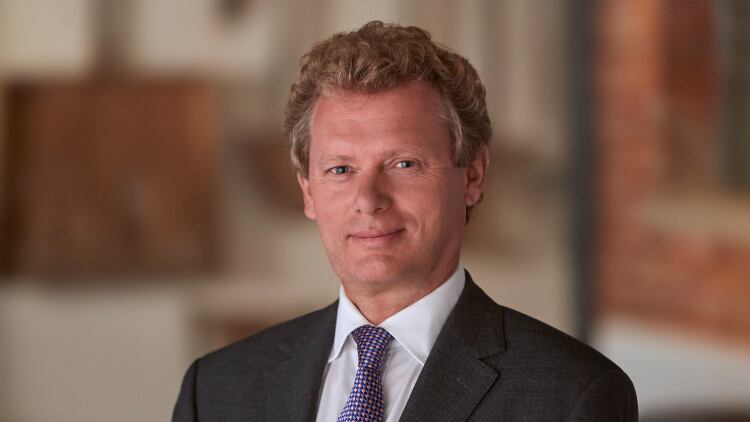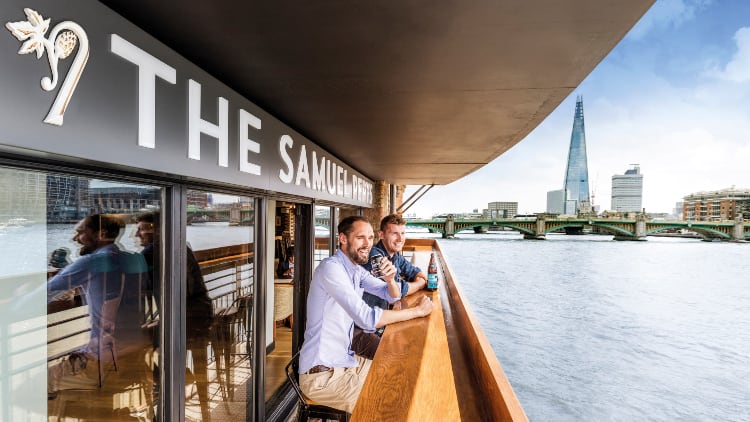As reported by The Morning Advertiser (MA), despite strong year-on-year trading across its managed and tenanted pub estate – which saw respective like-for-like sales increase 3.2% and 3.3% – a one-off charge of £10.8m incurred by refinancing debt facilities saw profits and turnover dip at Shepherd Neame in the year to 29 June 2019.
However, discussing the brewer and operator of 322 pubs’ latest results with MA, Shepherd Neame’s chief executive Jonathan Neame explained: “It has been a busy year and, in a sense, the numbers need a bit of understanding because of the impact of refinancing. But when you peel all that away the long-term heart of the business is very consistent.
“At the moment, we see some good opportunities in beer – in addition to Singha there may be other partnerships that materialise – but, overall, we see our position as an independent, authentic business geographically located where we are having a lot of resonance with today's consumers and lots of opportunities. But we're never looking to knock the lights out, we're looking for steady, sustainable progress.”
Seven-figure project strategy
With Shepherd Neame’s 70 managed houses now accounting for approximately 50% of the company’s turnover according to Neame, the operator of 322 pubs views its managed estate as a key part of future growth.
The company’s results for the 26 weeks ended 29 December 2018, for example, saw the loss of brew contracts accounting for £9.2m turnover between them offset by managed growth.
"We do see the managed mix of the business continuing to evolve,” Neame explained. “We do have sites within our tenanted business that, over the medium term, we would expect to transfer to the managed estate.”
Neame added the brewer and operator would continue to pursue a strategy of investing in two of three flagship pub projects per year to boost the company’s bottom line. “Part of the managed performance this year is because of three really transformational investments we made in the prior year that have really kicked on and helped move our profitability and margin forward,” he explained.
“We do have a number of sites that we can still see transformational opportunities within our managed business and have identified two within the coming year as our big projects – that's the Wharf in Dartford, Kent, and the Woolpack in Banstead, Surrey, and well over £1m per site.
“We've then got a new-build pub-restaurant-hotel in the Ebbsfleet Garden City called the Chalk Yard, that will commence building from March next year and will take about a year to build. Big, single-site, development of that type is where we can deliver growth.
“Our basic plan is to try to do two or three big sites per annum and we see that pattern continuing really for the foreseeable future.”
Preparation for Brexit
The Kent-based operator, which has a Brexit risk committee reporting to the executive board on Shepherd Neame’s responses to risks and opportunities associated with the UK’s exit from the European Union, disclosed a relatively small level of exports to the EU. Total worldwide export sales are less than 2% of turnover and an overall proportion of EU nationals employed by the company is at less than 10%. Nonetheless Brexit is an ongoing consideration for the Kent-based brewer.
“We can only do what we can in terms of taking a bit of warehousing space, buying forward a bit of foreign currency, trying to manage our supply chain as effectively as possible, but there are certain risks that are outside of our control.
“The only certainty these days is that there is uncertainty – it's the new norm and you have to deal with it – if it's not Brexit it's something else.
“In a world when there are a lot of EU workers in the UK, we haven't had a lot of EU workers in our business, but the fundamental issue is how do you grow and develop your own people as effectively as possible – we've launched an apprenticeship scheme this year and developed training in our managed house staff a lot. It's a long-term investment in our people that I'm sure will pay dividends with or without Brexit.”




